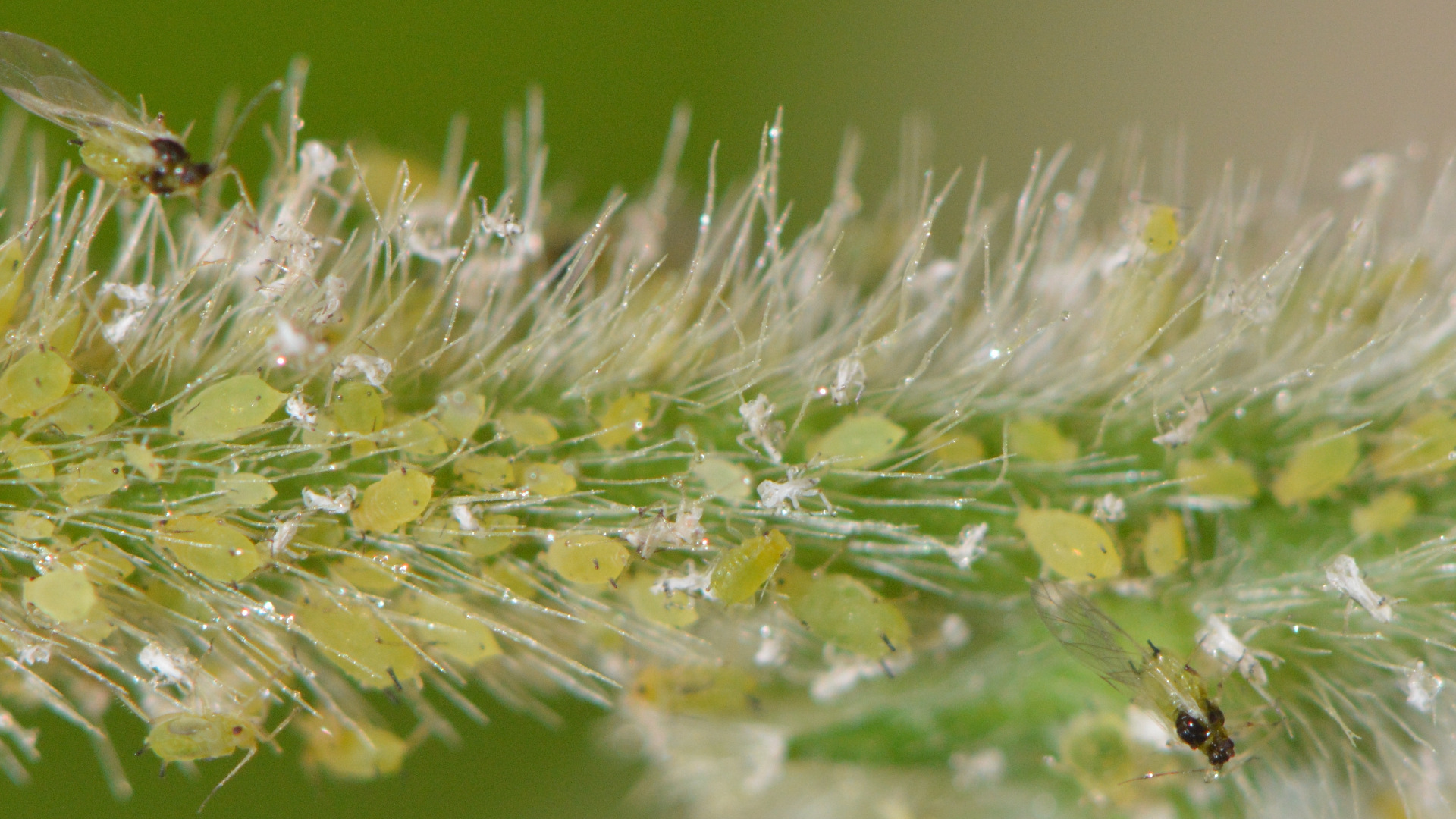Lab Members
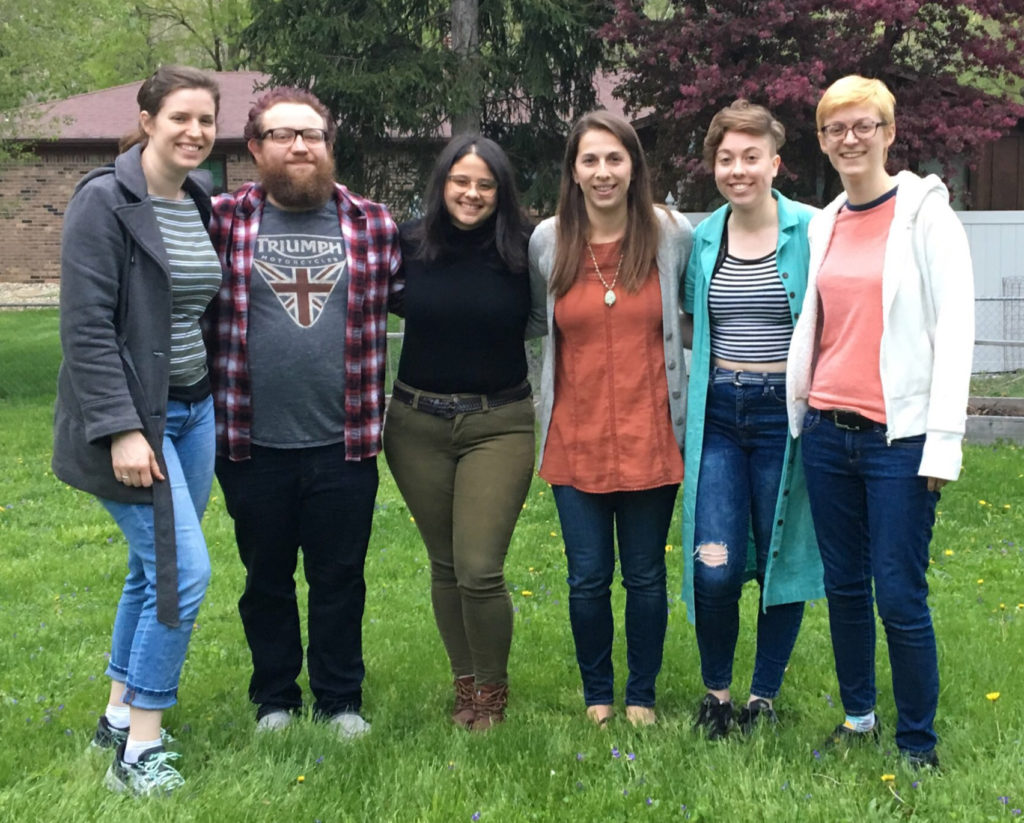
Dr. Laramy Enders
Graduate Students and Postdoctoral Researchers
Undergraduate Researchers
Marcus Miller
Kylie Schofield
Former Lab Members
Dr. Elizabeth French
Marian Rodriguez-Soto (M.S. 2021)
Emily Paul
Ziyan Jin
Dr. MacKenzie Kjeldgaard
Colleen Couch
(M.S. 2020)
Kirsten Brichler
Dr. Subbu Sankaranarayanan
Nick Cazzaniga
Drew Wennmacher
Research
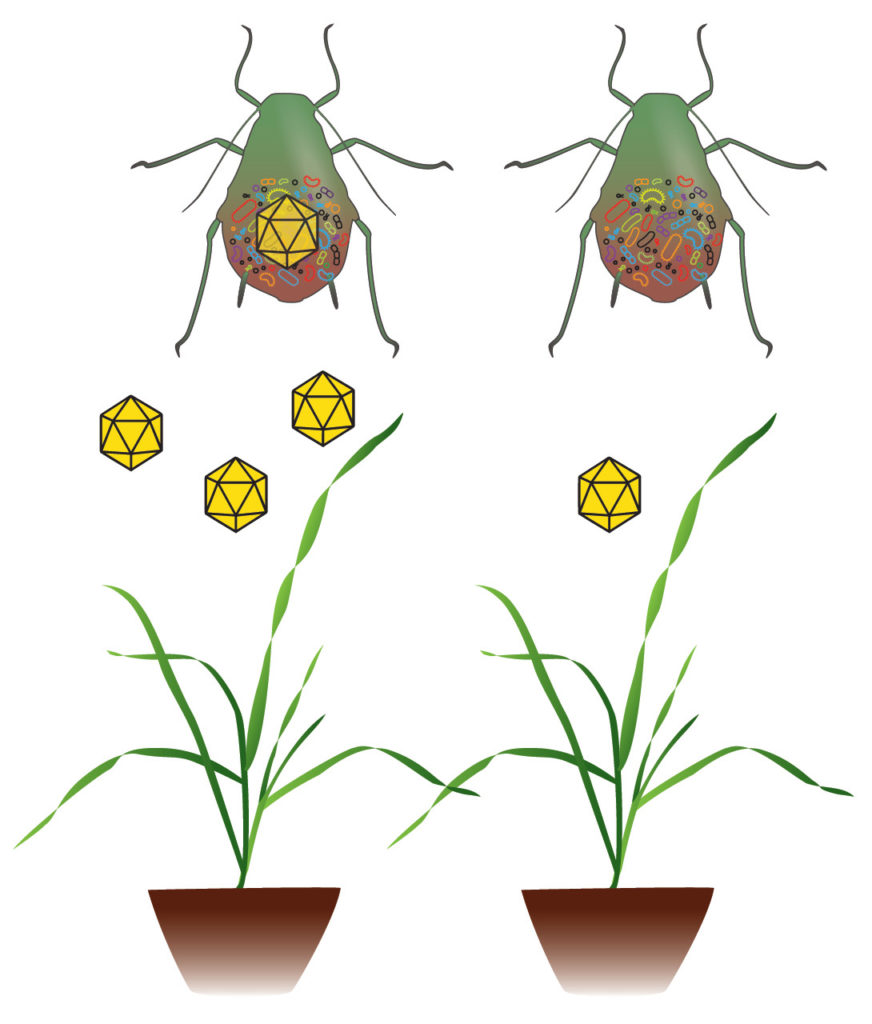
Vector Microbiomes – Plant Pathogen Dynamics
Plant pathogens transmitted by insect vectors are widely recognized as a major limiting factor for agricultural production. However, it is unclear to what extent viruses circulating through the insect body interact with resident microbiota during the transmission process. The lab is currently investigating the role of bacterial symbionts in Barley yellow dwarf virus transmission by cereal aphid vectors and developing spatio-temporal models in collaboration with Trevor Hefley to better predict changes in vector competence and disease dynamics.
Engineering Beneficial Crop Microbiomes
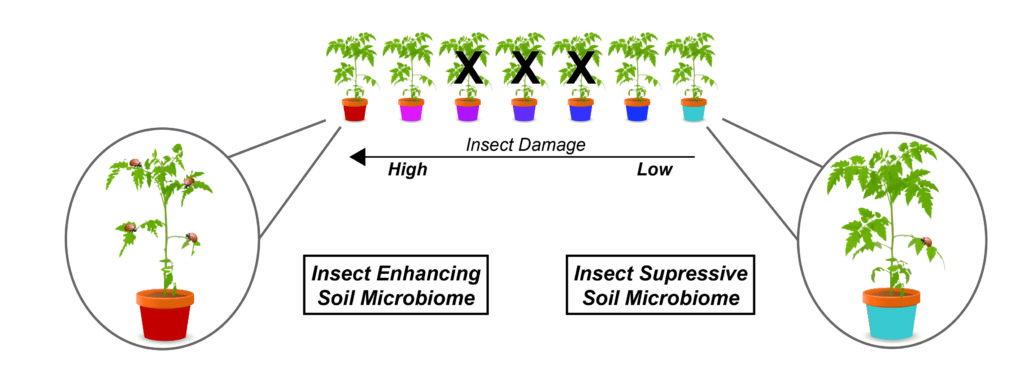
Soil microbes are a key component to aboveground plant defense, yet scientists have struggled to identify and harness the beneficial properties of agricultural microbiomes. Our lab is interested in understanding the functional basis of microbe-mediated crop protection against insect attackers and identifying how beneficial microbiomes can be deployed across diverse crop plants and soil types. We are currently working on a collaborative project with Ian Kaplan that uses a novel host-plant based approach to selectively engineer beneficial soil microbiomes that provide protection against foliar insect pests in tomato.
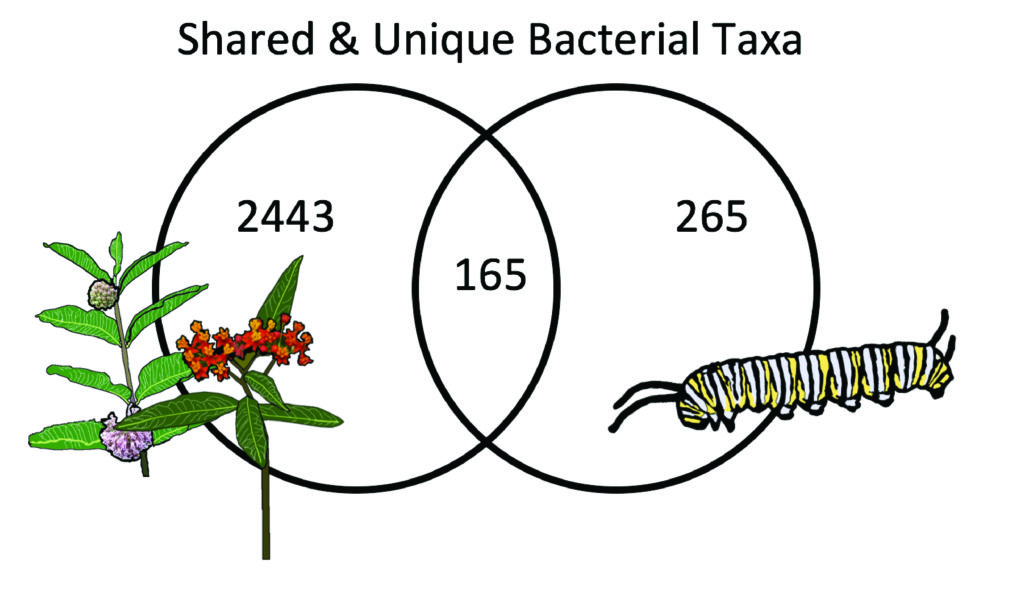
Milkweed Herbivore Microbiomes
Our lab is interested in how environmental factors, such as host plant range and climate, influence insect-microbe interactions and how these relationships evolve. Several ongoing projects focus on understanding how variation in host plant defensive chemicals, interspecific competition and agricultural practices shape the microbial communities associated with milkweed plants and their specialist herbivores. We are investigating patterns of variation in milkweed aphid bacterial symbionts and the extent to which milkweed defensive chemicals drive changes in monarch microbiomes.
